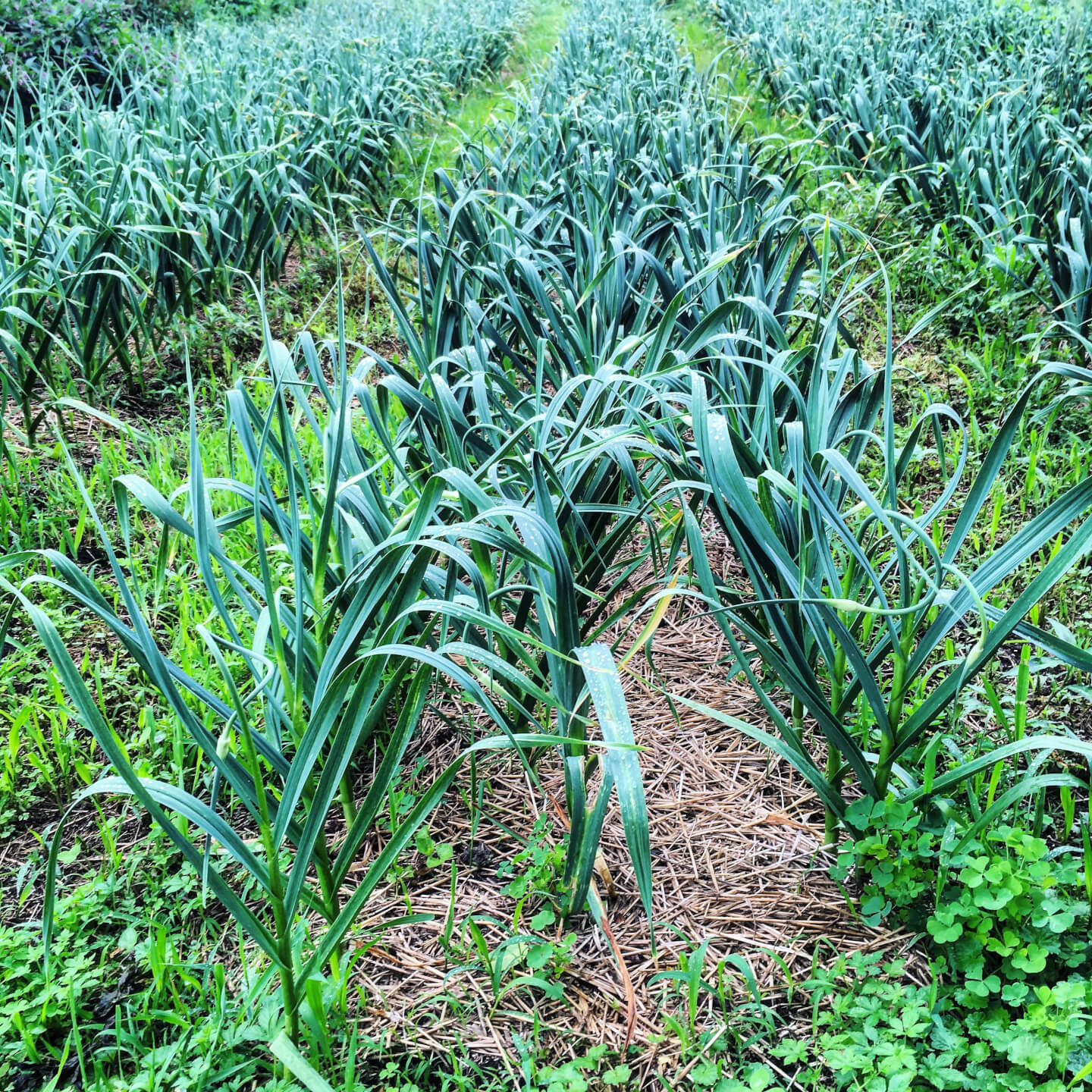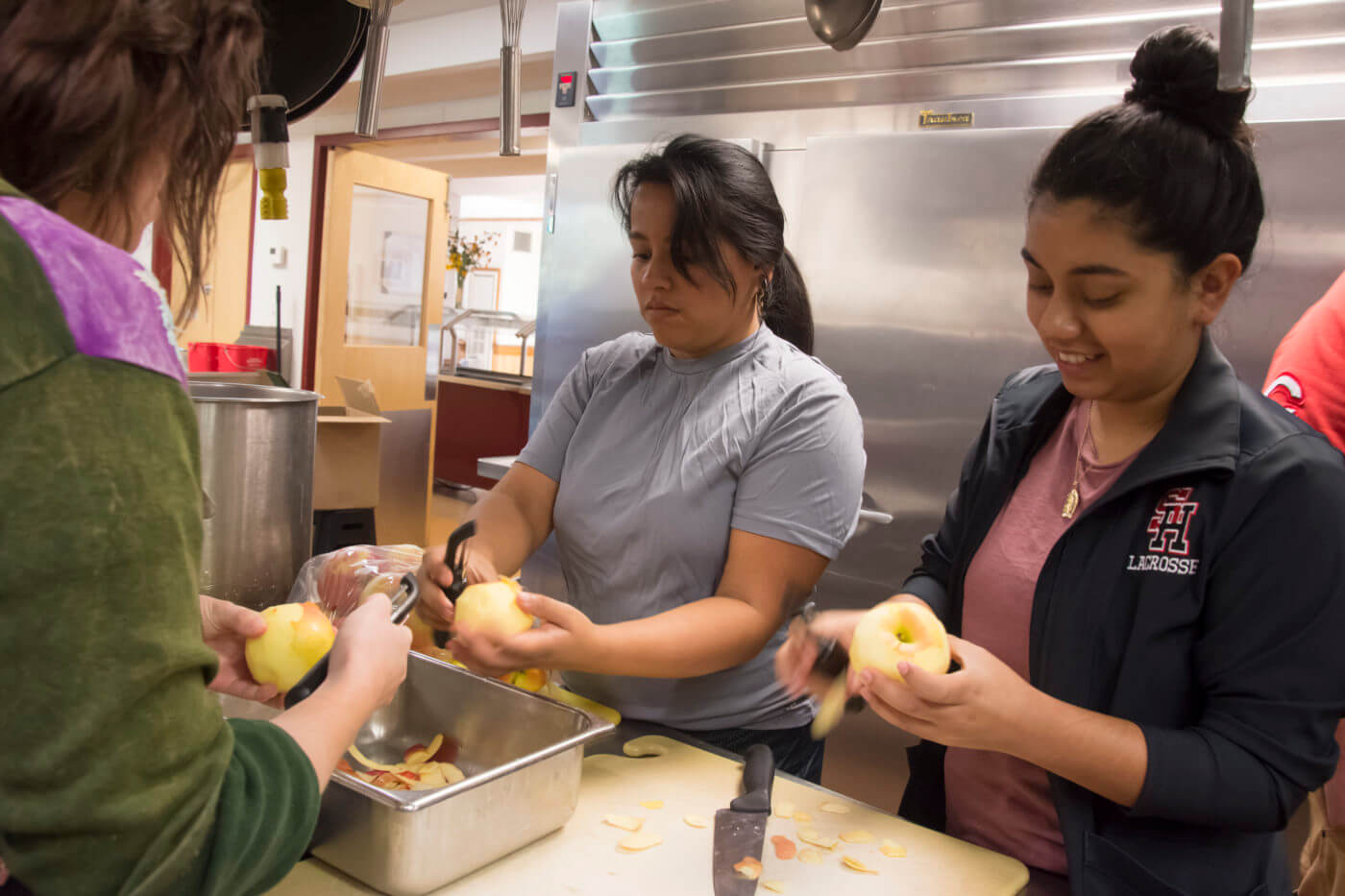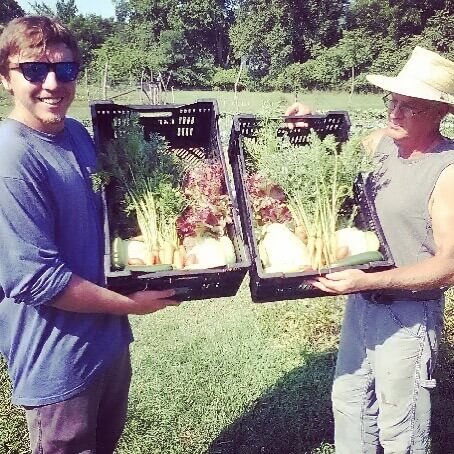Today, October 16, Antioch College celebrates World Food Day, which marks the founding of the Food and Agriculture Organization of the United Nations in 1945. One of the College’s generous supporters will be making a donation to the Gem City Market—a food cooperative founded by alum Lela Klein ’02 to address Dayton’s food crisis—in honor of Antioch College’s commitment to sustainable, ethical, local food.
This year’s World Food Day theme is Zero Hunger, the idea that we should respect food and everything connected to it, end hunger, achieve food security and improved nutrition, and promote sustainable diets and agriculture. Antioch College strives to meet the goals of Zero Hunger through our nationally recognized food and dining program, as well as our campus Farm, which follows the principles of ecological agriculture and supplies around 5,000 pounds of food to our dining hall during the growing season. From the food grown 1,500 feet from our dining hall, to the waste-conscious and nutritious meals freshly prepared every day, food is a learning experience at the College and serves to illustrate the principles of sustainability and the labor involved in nourishing a community.
 By rejecting industrial-scale agriculture and the normal higher-ed practice of contracting out food service, Antioch College is disrupting the insufficient food system which contributes to the declining health of people and the environment. Guided by scientific data and the College’s core values, Antioch College is committed to ethical, sustainable, and local farming and food-sourcing, as well as educating our students around issues of food insecurity, self-sufficiency and resilience, labor practices, and healthy dietary choices.
By rejecting industrial-scale agriculture and the normal higher-ed practice of contracting out food service, Antioch College is disrupting the insufficient food system which contributes to the declining health of people and the environment. Guided by scientific data and the College’s core values, Antioch College is committed to ethical, sustainable, and local farming and food-sourcing, as well as educating our students around issues of food insecurity, self-sufficiency and resilience, labor practices, and healthy dietary choices.
Dining hall menus at Antioch College feature an abundance of plant-based food  options, which we have sourced to meet our standards for ethically produced real food; not all plant-based (vegetarian and vegan) options meet those standards due to poor labor practices, high carbon footprint, and highly processed production methods. The Antioch Kitchens staff also work carefully to minimize food waste, the leading food-related solution to climate change identified by Project Drawdown. Further, the Kitchens prioritize plant-rich menus by not overpreparing meat options at meals, as well as not serving meat at every meal each day. Our meals start with what’s fresh from the campus Farm harvest as well as other local, independent, sustainable farms. Antioch students can participate in raising and cooking the food served on campus, from fruits and vegetables to chickens, ducks, geese, and sheep.
options, which we have sourced to meet our standards for ethically produced real food; not all plant-based (vegetarian and vegan) options meet those standards due to poor labor practices, high carbon footprint, and highly processed production methods. The Antioch Kitchens staff also work carefully to minimize food waste, the leading food-related solution to climate change identified by Project Drawdown. Further, the Kitchens prioritize plant-rich menus by not overpreparing meat options at meals, as well as not serving meat at every meal each day. Our meals start with what’s fresh from the campus Farm harvest as well as other local, independent, sustainable farms. Antioch students can participate in raising and cooking the food served on campus, from fruits and vegetables to chickens, ducks, geese, and sheep.
 The College’s commitments extend beyond our campus in support of our region. Antioch College contributes to the Yellow Springs community with donations of fresh produce from the campus Farm to the Yellow Springs Community Food Pantry. This summer, three donations totaling 94.5 pounds of real food were made. In addition, each donation included a bucket of flowers for the Food Pantry patrons to not only provide sustenance, but also beauty. The Antioch Kitchens staff also participates in service, and will be volunteering at House of Bread close to Thanksgiving.
The College’s commitments extend beyond our campus in support of our region. Antioch College contributes to the Yellow Springs community with donations of fresh produce from the campus Farm to the Yellow Springs Community Food Pantry. This summer, three donations totaling 94.5 pounds of real food were made. In addition, each donation included a bucket of flowers for the Food Pantry patrons to not only provide sustenance, but also beauty. The Antioch Kitchens staff also participates in service, and will be volunteering at House of Bread close to Thanksgiving.
Antioch College has received national recognition for its efforts. As an Association for the Advancement of Sustainability in Higher Education (AASHE) STARS Silver-rated campus, the College’s food and dining and grounds maintenance programs have also been recognized by AASHE as top-performers in the 2019 Sustainable Campus Index, ranking in the top 10 in STARS-rated institutions nationwide. Our model for providing vegetable- and real-food focused meals for students has also earned the campus dining hall an “A” rating from PETA’s Vegan Report Card, a rating system based on vegan and alternative food options available in campus dining halls.
Environmental sustainability it a core Area of Practice for Antioch College and central to the academic experience and operation at the College. Antioch College’s programs connect to leading knowledge, strategies, and studies including the United Nations Intergovernmental Panel on Climate Change reports, and leading experts such as Jonathan Foley, a world-renowned environmental scientist and sustainability expert, and Executive Director of Project Drawdown. The College’s environmental practices incorporate the five major solutions to food production challenges identified in a paper co-authored by Foley in Nature: stop converting land into agricultural use, increase efficiency of production on existing agricultural land, use resources more efficiently, massively reduce food waste, and shift diets towards more plant-based foods. Our dining and campus Farm provide an opportunity for students, faculty, and staff to learn the reality of where their food comes from, the ethics of the labor involved in producing and preparing their food, and the necessity to reduce waste and to respect the food we eat every day.
Learn more about our Farm-to-Table dining experience on our website, as well as what it is like to care for the food you will eat in this new video about the Antioch Farm.



